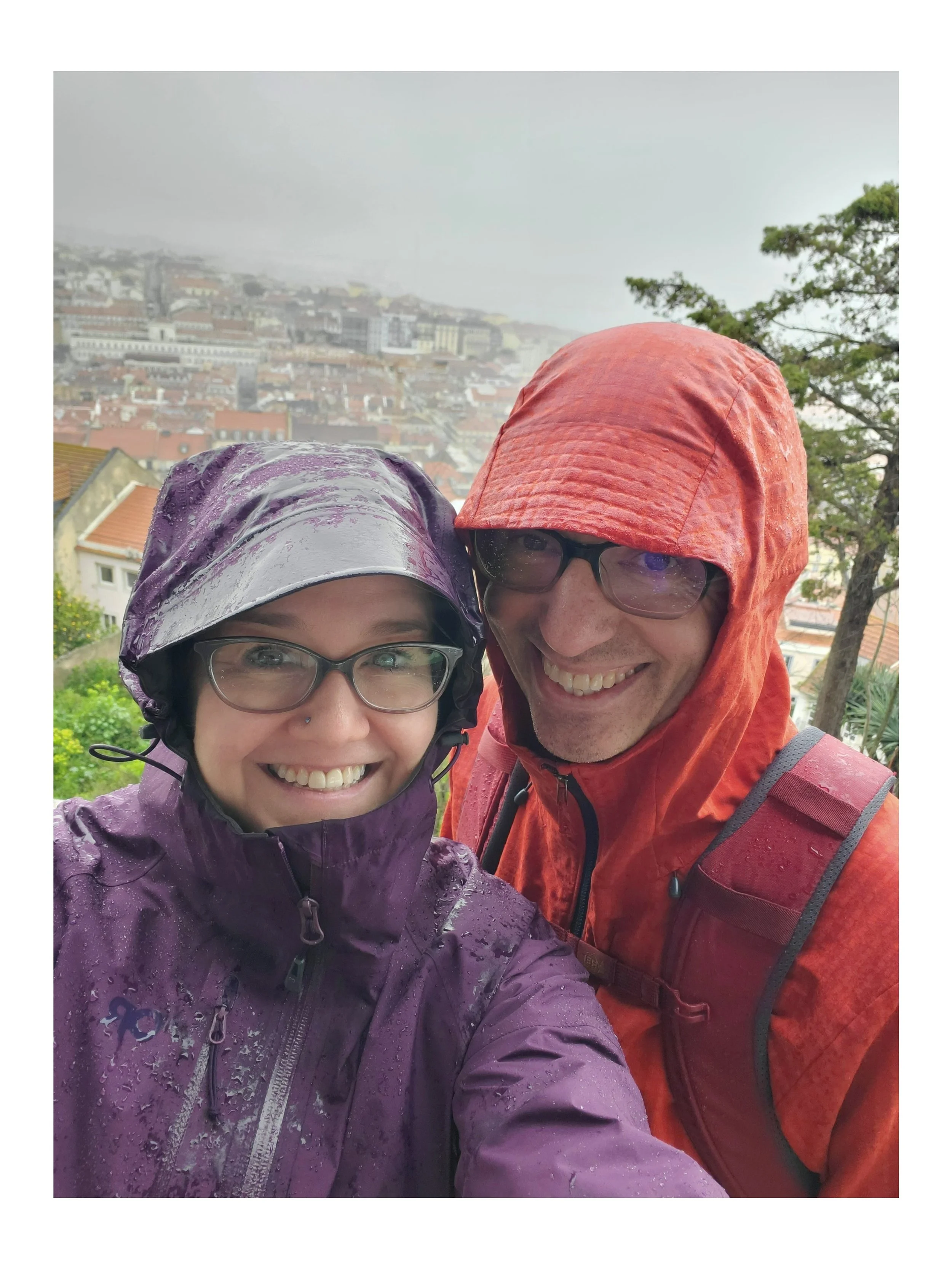"Make mistakes as fast as you can!"
Make more mistakes
We learn better, and remember things longer, when we are willing to first get them wrong. That takes a growth mindset.
Olá e boa tarde!
My husband Scott and I began studying Portuguese about 2 years ago. It started out as a novel thing to do together as the pandemic dragged on (and on …). But then we took a trip to Portugal this spring, and we fell in love with the country and its culture.
When we got home, we were both inspired to keep studying. We hired a lovely native-speaking tutor, Julieta, to help us with our listening and speaking. During the first lesson, I informed her in my slow, halting Portuguese that I understood her perfectly well, but that Scott was much better at speaking than I was. She said it was common for language learners to be reluctant to speak up, and it’s usually because we are afraid of making mistakes. (Truth!)
Her advice? “Make as many mistakes as possible, as fast as you can.” We learn better, she said, and remember things longer, when we first get them wrong. Out loud. In front of other people. (Ouch!)
But it makes perfect sense. Our brains have evolved over thousands of years to have a strong negativity bias. Think about it: While we would love to remember the location of that beautiful flower, we need to remember which berry bush made us deathly ill. From a survival standpoint, the negative memory trumps the positive.
Julieta’s advice is the best way I’ve ever heard to make the negativity bias work for you, instead of against you. The more mistakes you make when learning something new, the better it will stick with you, and the less likely you are to make the same mistakes again. (Do you remember the word that knocked you out of the 7th grade spelling bee? I do: “tongue”!)
As I reflected on this conversation, I noticed something else. Though I didn’t say it out loud often, I was holding a belief that Scott is “good at learning languages” … and I am not.
Now, it may be true that Scott has a gift for languages. But here’s what is also true: Once we made the decision to go to Portugal, he immersed himself in Portuguese. He listened to Portuguese news reports and podcasts (even when he barely understood them). He switched his inner dialogue to Portuguese, narrating his day and stopping frequently to look up words he didn’t know. Almost as soon as we touched down in Lisbon, he started small-talking with any local shopkeeper who seemed good-humored enough to respond in kind. (There were many!) And his fluency grew by leaps and bounds, while mine stumbled.
The difference comes down to mindset. Scott has a growth mindset when it comes to languages. He believes that his Portuguese will get better if he works at it. I on the other hand, without realizing it, had adopted a fixed mindset in this area, the belief that my language ability was inherent to my personality and unchangeable.
A fixed mindset sabotages our efforts and slows our progress. It also makes us more sensitive about making mistakes, because we tend to see every error as further evidence of who we are (“bad at languages”) instead of an opportunity to learn.
This experience was a great reminder that we all apply different mindsets to different situations and skills. I, for example, had a growth mindset about my ability to navigate Lisbon’s Metro system. But I was stuck in a fixed mindset about speaking the language.
The other good news is that, once we notice the mindset we’re in, we can take steps to change it:
Remind yourself of a time you learned something new or overcame a challenge by applying persistent effort.
Every time you notice a thought like, “I’m no good at this,” simply add “yet” to the end of the sentence.
Watch someone who has the skill you want, sleuthing for the habits or efforts that contribute to their success. If you’re comfortable, ask them what steps they took to get so good at what they do.
And of course … make lots of mistakes. The more mistakes you make, the more comfortable you get making them, and the faster your learning will take off.
I’m still not fluent in Portuguese, but I’m learning more with every mistake I make. Confiar em mim, it works!

